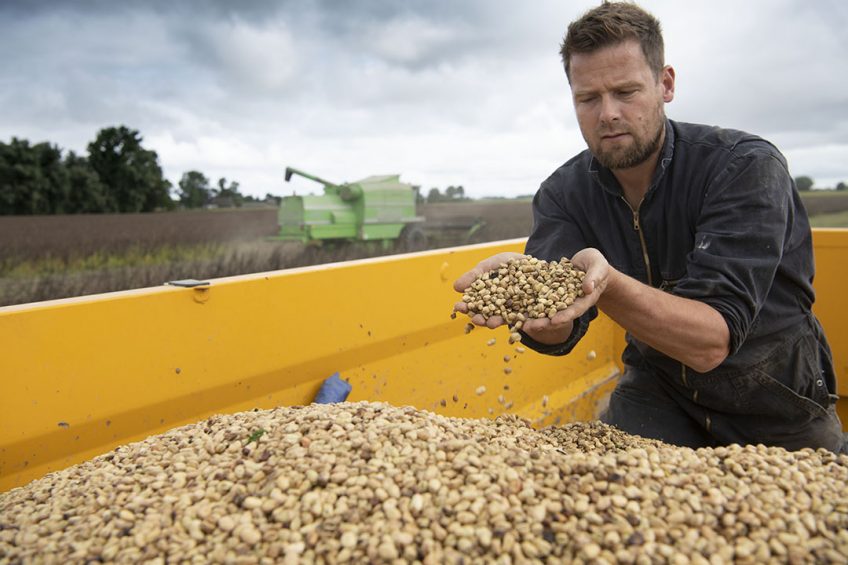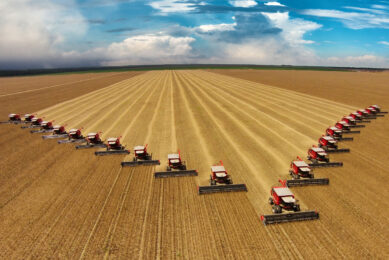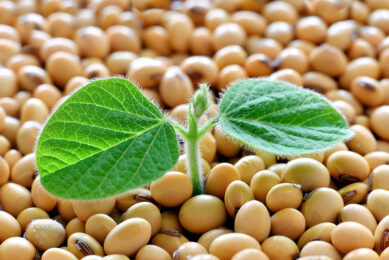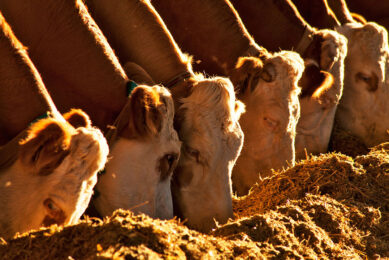Alternative home-grown protein sources for poultry

Findings into alternative home-grown protein sources could help the UK poultry sector move away from unsustainable soya imports.
At a time when global supplies of soya are looking increasingly fragile, farmer-led research has found that sprouting wheat and vetch seeds, grain tailings and processed beans have all been found to offer good alternative nutrients for monogastrics, and could be growth within UK farming systems.
At present, most of the soya imported into the UK is used to manufacture food and feed livestock, but of these imports, two-thirds were found in 2019 to be from sources with a potential risk of deforestation, according to the UK Roundtable on Sustainable Soya. Current supply chain problems from China and India have this year led soya prices to jump by 80% in the year to June. The conclusions of the 3-year field lab collaboration between farmers and researchers now offers a path towards a system based on regional feed production and sourcing. The farmers have been working with The Organic Research Centre in a field lab in conjunction with Innovative Farmers.
Valuable home-grown feed sources
The field lab looked at 3 possible protein sources:
- Sprouting seeds
- Increasing the nutritional value of beans through heat treatment and dehulling
- Saving grain tailings.
All were found to have some value as home-grown feed sources. The trials have all been successful in their own way, said Dr Lindsay Whistance, senior livestock researcher at The Organic Research Centre: “They’ve all highlighted existing potential in feed stuffs that can be adapted, helping to find solutions for reducing the need to import feed for pigs and poultry.”
Sprouting vetch for chicken feed
Mike Mallett, who organically farms 3,000 laying hens in Suffolk, ran the sprouting seed trials as part of the field lab and says British hens need to be fed with UK-sourced feed. “I’ve been trying t take soya out of my chicken feed for 9 years and have grown all sorts of crops, including sunflowers and lupins. But our farm has either been too cold, or perhaps too alkaline. Vetch, however, is something our farm can grow well.”
An excellent inter-cropper
Vetch also has the advantage of being useful in his farming system, adds Mallett, since it fixes more nitrogen than peas and beans, and is an excellent inter-cropper, particularly with oats and also improves soil structure. However, vetch seeds do contain toxins for monogastrics and tripsonin inhibitors, which affect egg-laying frequency and size. But Mallett found that by germinating the seeds he could reduce these while preserving other micro nutrients and proteins. “It also means I have a green forage to feed the hens when they’re indoors during the winter when there is less outdoor forage.”
Scalable technology to produce germinated seeds
Mallett is now developing a sprouter that can produce hundreds of kilos of germinated seeds a week, and believes the technology is scalable to other farms. Moving forwards, he plans to keep his chicken feed local: vetch sprouts, switching to a laying hen breed that needs less intensive feeding, and growing his own meal worms for added protein.
A need for a more sustainable, stable and secure feed source
Jerry Alford, Innovative Farmers field lab coordinator and arable soils advisor to the Soil Association, said that while soya was hard to beat nutritionally and could be grown in the UK, it was unlikely to be available in the volumes needed. “So, it’s about looking at what resources we have available, what we can grow and how we can adapt these to produce our own alternative feeds, rather than importing them. We desperately need a more sustainable, stable and secure feed source, and the way to do that is to grow more in the UK. For organic farmers in particular, the trial results offer a way to achieve 100% organic feed without the carbon footprint associated with imported products,” added Alford.











